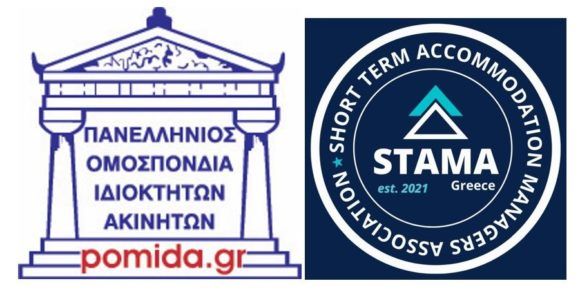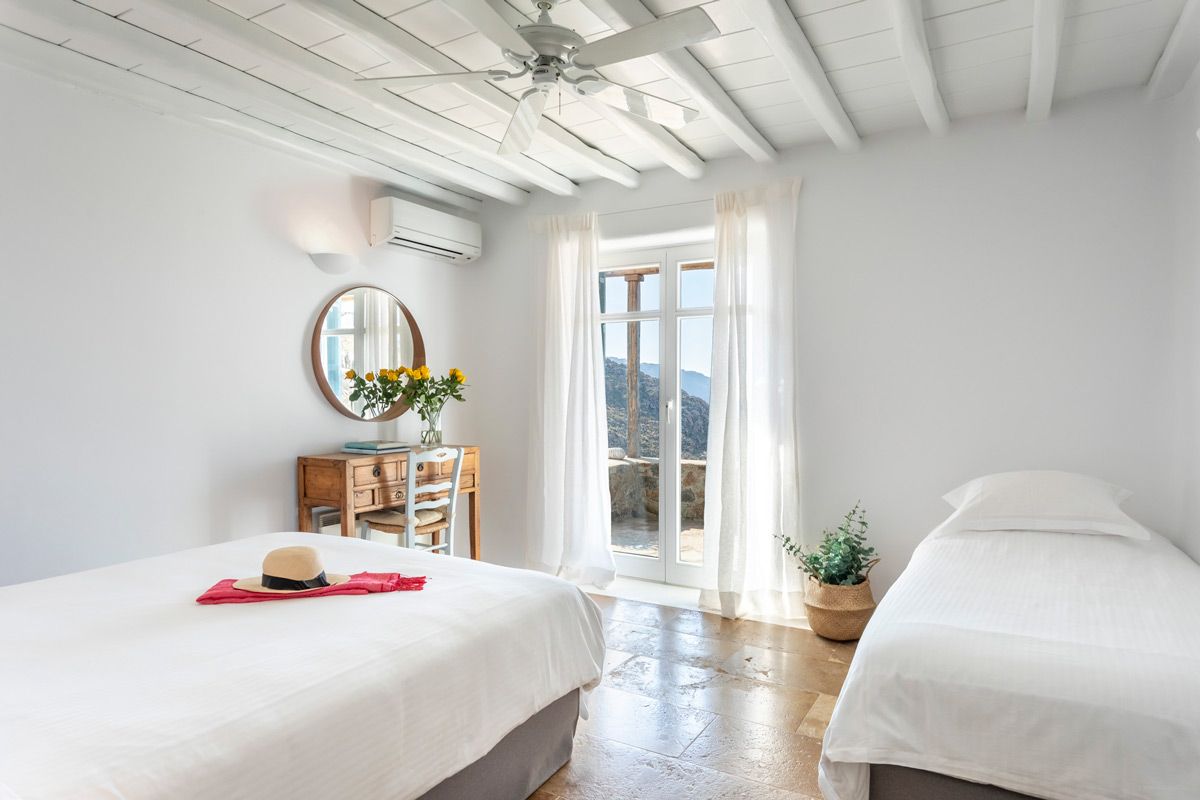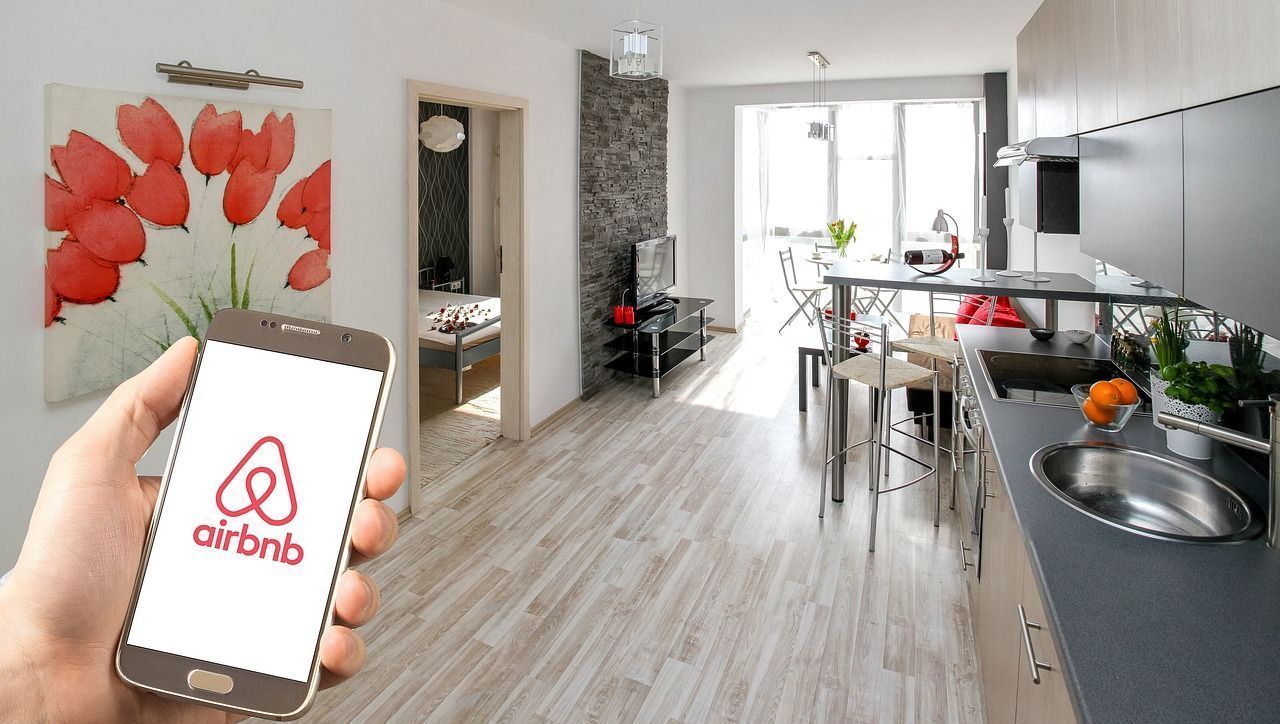Greek Property Bodies, Airbnb-style Rentals Hosts React to STR Bill
Greek property owners and short-term rentals (STR) hosts are calling on the government to re-examine proposed legislation aimed at regulating Airbnb-style accommodation.
 In a letter to Greek Prime Minister Kyriakos Mitsotakis and responsible ministers, including Tourism Minister Vassilis Kikilias, the Hellenic Property Federation (POMIDA) and Greece’s Short-Term Accommodation Managers Association (STAMA) argue that the announced government measures are “one-sided” and anything but regulatory in nature. To the contrary they said, it will “financially strangle” property owners and managers, employees and their families, suppliers, businessmen, shopkeepers and the local communities resulting in massive losses of public revenue.
In a letter to Greek Prime Minister Kyriakos Mitsotakis and responsible ministers, including Tourism Minister Vassilis Kikilias, the Hellenic Property Federation (POMIDA) and Greece’s Short-Term Accommodation Managers Association (STAMA) argue that the announced government measures are “one-sided” and anything but regulatory in nature. To the contrary they said, it will “financially strangle” property owners and managers, employees and their families, suppliers, businessmen, shopkeepers and the local communities resulting in massive losses of public revenue.
Meanwhile, according to a Grant Thornton study, Greece’s short-term tourist rental market is valued at 3.3 billion euros in 2022 and costing the state millions in lost tax revenues.
In the letter, the two associations are urging the government to enter dialogue “before it’s too late”. Legislation, they claim, should not “unilaterally concern the interests of hoteliers but the general interest of the country, society and tourism”.
According to the property owners, the regulation under discussion, which comes after the European Commission presented a set of proposed rules aimed at regulating short-term tourist rentals and helping authorities ensure balanced tourism development, has only taken the interests of hoteliers into account.
POMIDA and STAMA go on to note that the planned measures will make short-term rental activity not viable.
What the STR market has offered Greece
Among others, the two bodies point out that the short-term rental market in Greece has:
– contributed greatly to the upgrade of entire neighborhoods and boosted economic activity in these, and
– contributed to the sharing economy, a global phenomenon, which has enhanced tourist activity and boosted revenues without government support or funding contrary to hotel enterprises which have repeatedly been granted support.
Moreover, the two bodies highlight that:
– short-term rental operations are run by Greeks contrary to hotels – many of which belong to major international hotel chains
– short-term tourist rental activity distributes income to local communities as part of the sharing economy unlike hotel businesses
– Airbnb-style operations are already being taxed more at 45 percent without spending exemptions while hotels, POMIDA and STAMA say, are taxed at 22 percent with expense exemptions
– short-term rental activity during the economic crisis in Greece in 2010 helped support families and led to the renovation and reuse of abandoned buildings.
Earlier this month, the Greek Tourism Confederation (SETE) tabled a set of proposals which include placing a limit to the number of apartments in one single building being rented out as Airbnb-style tourist accommodation; tax deduction only for individual hosts; a 5 percent tax on short-term rental platforms on the total price of the short-term lease to be paid to the state; and placing a cap on the number of short-term rental properties allowed in each municipal unit.
It should be noted that in the summer, the government included Airbnb-style accommodations in its annual “Tourism for All” program which subsidizes holidays for low-income families drawing the reaction of hoteliers.
European Commission’s proposal
Greece will have to finalize a regulatory framework soon in line with the European Commission’s proposal set to be adopted by European Parliament and Council in the coming period. Greece will then have two years to establish the necessary mechanisms for data exchange (platforms like Airbnb and Booking.com will have to automatically share data once a month with public authorities about the number of rented nights and of guests) and monitoring.









Guest who stay at Airbnb-Style accomodation will not stay in hotels. They want an authentic greek experience, living in a truly greek environment, paying often more than the hotel rates. Taxing these short term rentals even more excessively will just keep tourists coming from Greece and stop a modest income stream to families. There are the hotel guests and there are the Airbnby-style guests, completely different grout of customers. The airbnb style guests are those that bring revenue to the local communities, bakeries, restaurants, supermarkets, shops etc.
Think that this totally wrong and the government should be doing as much as possible to support these smaller businesses who bring a great deal to the local communities….the large hotels do their best to ensure guests stay in the hotel and “milk” the tourists for all the can get out of them….